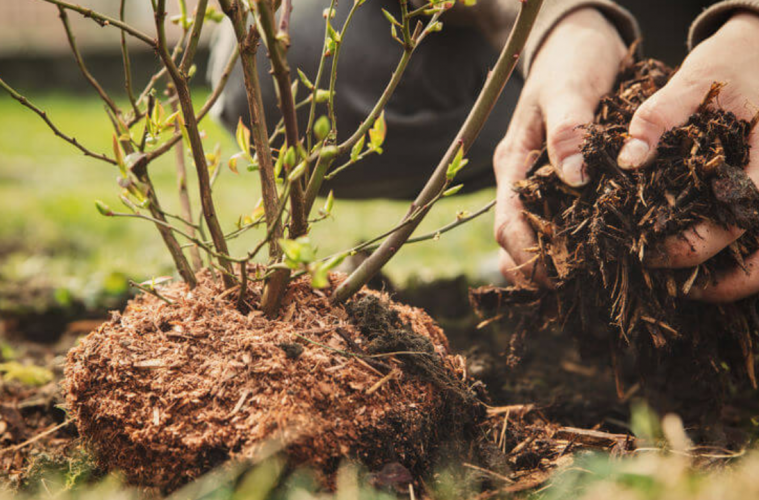In the garden, where green thumbs and blooming petals reign supreme, one often underestimated practice that holds the key to a thriving oasis is mulching. Beyond its aesthetic appeal, mulching plays a pivotal role in promoting the health of your garden. From conserving moisture to curbing pesky weeds, the benefits of mulching are as diverse as the flora it nurtures.
Conservation of moisture
Water, the elixir of life for plants, can be elusive, especially during scorching summers. Mulching acts as a natural barrier, reducing water evaporation and maintaining consistent soil moisture levels. This moisture retention not only quenches the thirst of your plants but also lessens the need for frequent irrigation, ultimately contributing to water conservation efforts.
Weed suppression
The battle against invasive weeds can be ceaseless, but mulching arms you with an effective weapon. By forming a protective shield over the soil, mulch obstructs sunlight that weeds require to grow. This not only hampers their germination but also stifles existing weeds, minimizing the competition for nutrients and ensuring your garden’s beauty isn’t overshadowed.
Temperature regulation
Just as a cozy blanket keeps us warm, mulch provides insulation for plants. It shields the soil from extreme temperature fluctuations, keeping it cooler in summer and warmer in winter. This stable environment encourages robust root growth, enhancing the overall resilience of your plants against adverse conditions.

Unsplash
Read more: Edible garden care essentials
Soil enrichment
As mulch gradually breaks down, it contributes organic matter to the soil, enriching it with vital nutrients. This natural composting process enhances soil structure, drainage, and nutrient-holding capacity. Consequently, your garden’s soil becomes a thriving ecosystem, nurturing plants to reach their full potential.
Erosion prevention
Unprotected soil is susceptible to erosion by wind and rain. Mulching safeguards against this by forming a protective barrier that anchors the soil in place. This is especially crucial on slopes and in areas prone to heavy rainfall, preventing the loss of valuable topsoil.
Pest management
Certain types of mulch, such as cedar or pine, possess natural oils and compounds that act as deterrents against pests. These aromas discourage unwanted insects from making your garden their home, reducing the need for chemical interventions.
Incorporating mulching into your gardening routine is a small investment with grand returns. Whether you’re nurturing delicate roses or robust tomatoes, mulching is the secret ingredient that sets the stage for a flourishing garden that stands as a testament to the magic of nature’s touch.
Fungus Gnats Part 1: What Are They And How Can I Stop Them Killing My Houseplants?
Feature image: Unsplash

